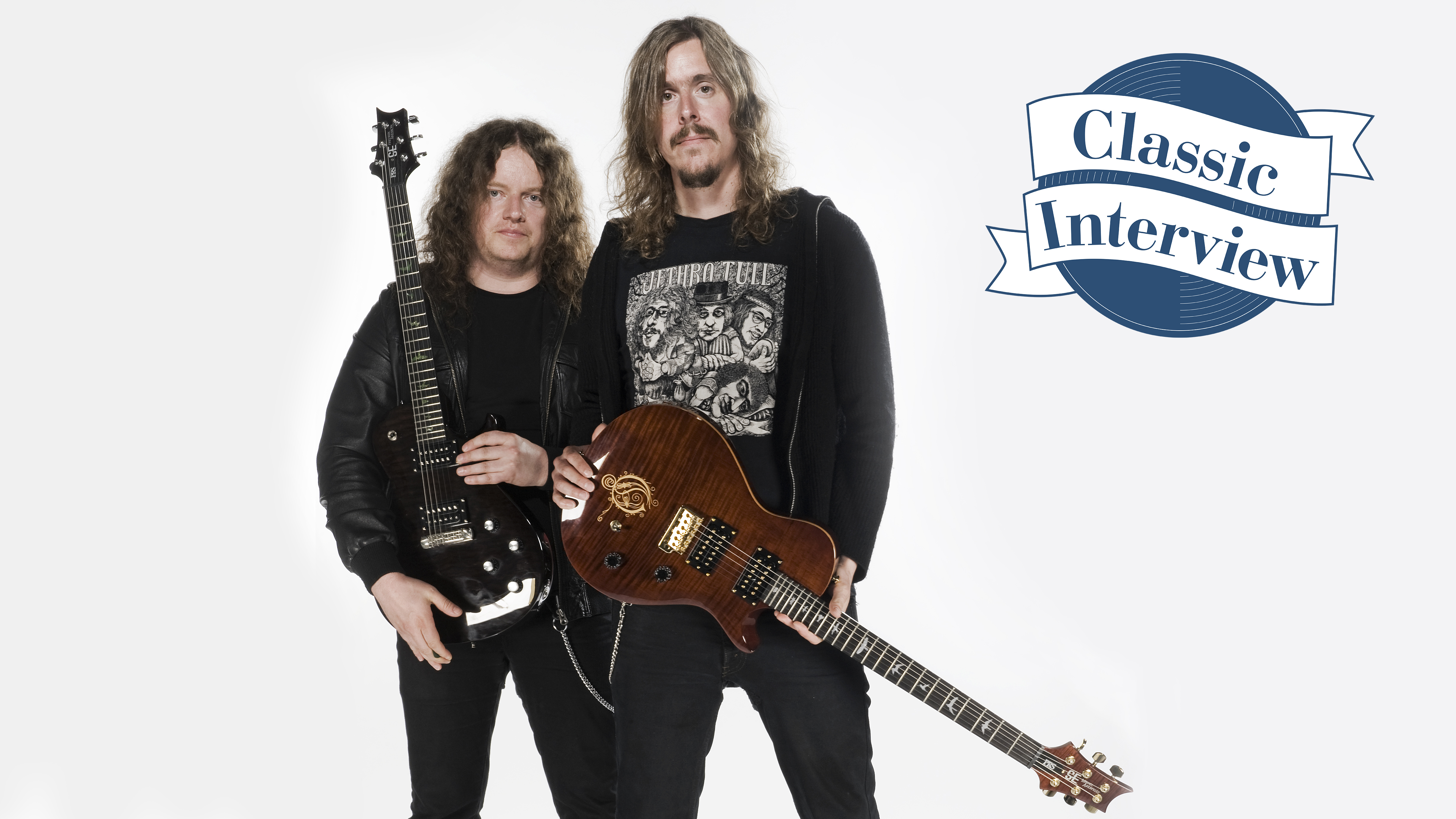
This 2011 interview first appeared in Total Guitar magazine
Change is a funny thing, and in heavy metal it can be a dichotomy. On one hand, you have a music genre that thrives on being different. On the other, you have an army of black-clad fans that will verbally crucify their favourite band for doing anything different. Mikael Åkerfeldt knows that better than most.
“There’s a guy on YouTube; he already hates this album even though he’s never heard it,” Opeth’s chief tells us incredulously. “He was filming himself stomping on our catalogue and burning it up. And he hates me.”
But fans of Åkerfeldt's band should be more open-minded than most, the odd attention seeker excepted. News that their follow-up to 2008’s Watershed was to contain no death metal vocals from Åkerfeldt, only his clean singing, is hardly heresy.
After all, these experimental Swedes have forged a path that finds them leaders in a genre of one – and the term ‘progressive metal’ doesn’t really do it justice. No other band has fused the worlds of death metal, folk and classic rock with such seamless and inventive panache.
For more than 20 years they’ve been challenging and surprising listeners with the brutal and beautiful, weathering line-up changes, while Åkerfeldt continues to bloom into a guitarist and vocalist of a rare calibre.
Now we’ve come to Strongroom Studios in London to hear Opeth’s 10th album, Heritage, in glorious 5.1 surround, and we find another surprise. This might be Opeth’s biggest change to date, but for Mikael, it was a natural and necessary move.
Get the MusicRadar Newsletter
Want all the hottest music and gear news, reviews, deals, features and more, direct to your inbox? Sign up here.
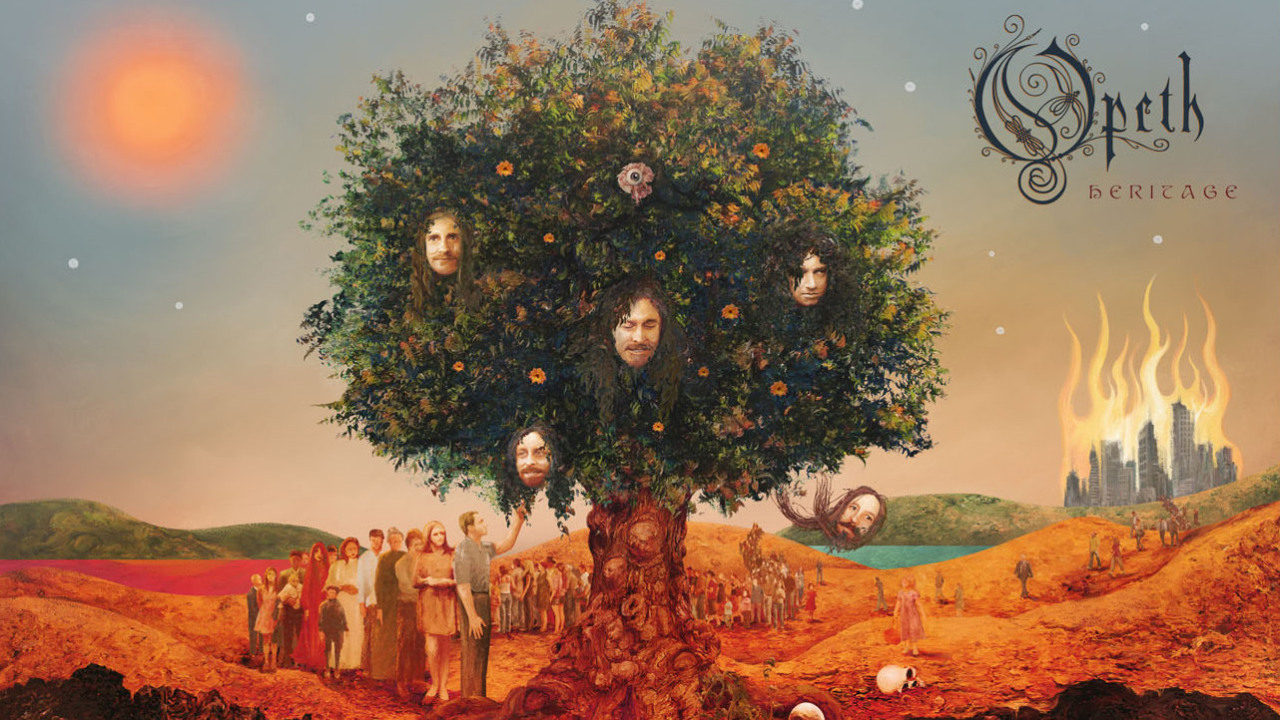
“To sound like humans playing as opposed to computers – which I think most metal records sound like these days"
Mikael Åkerfeldt
“I knew I wanted to have a different record,” he tells us as we leave the control room with him and Fredrik Åkesson, trying to get our heads around what we’ve just heard. “I wanted it to be different in terms of the actual sound production; less generic metal elements.”
It’s hard to imagine ever throwing that ‘g’ word Opeth’s way, but there’s no getting around it, Heritage sounds like the band’s reaction to contemporary metal – it’s organic, psychedelic, liberated and loose. Instruments breathe in their own spaces while the songs unfold and twist evocatively. Acoustic playing takes a more prominent role than ever before, alongside a jazz fusionist disregard for rock convention. It still sounds like Opeth, but Opeth have never sounded less like a metal band – a modern metal band, that is.
“To sound like humans playing as opposed to computers,” is how Åkerfeldt puts it. “Which I think most metal records sound like these days, like there’s no human touch on them – it’s quantised and fixed.” An honest yet opinionated statement, but Opeth’s songwriter and Heritage’s producer is walking out his talk on this album. The sound of Heritage suggests it’s rooted in his integrity and desire to offer something new that’s based on vintage values. But it didn’t happen overnight…
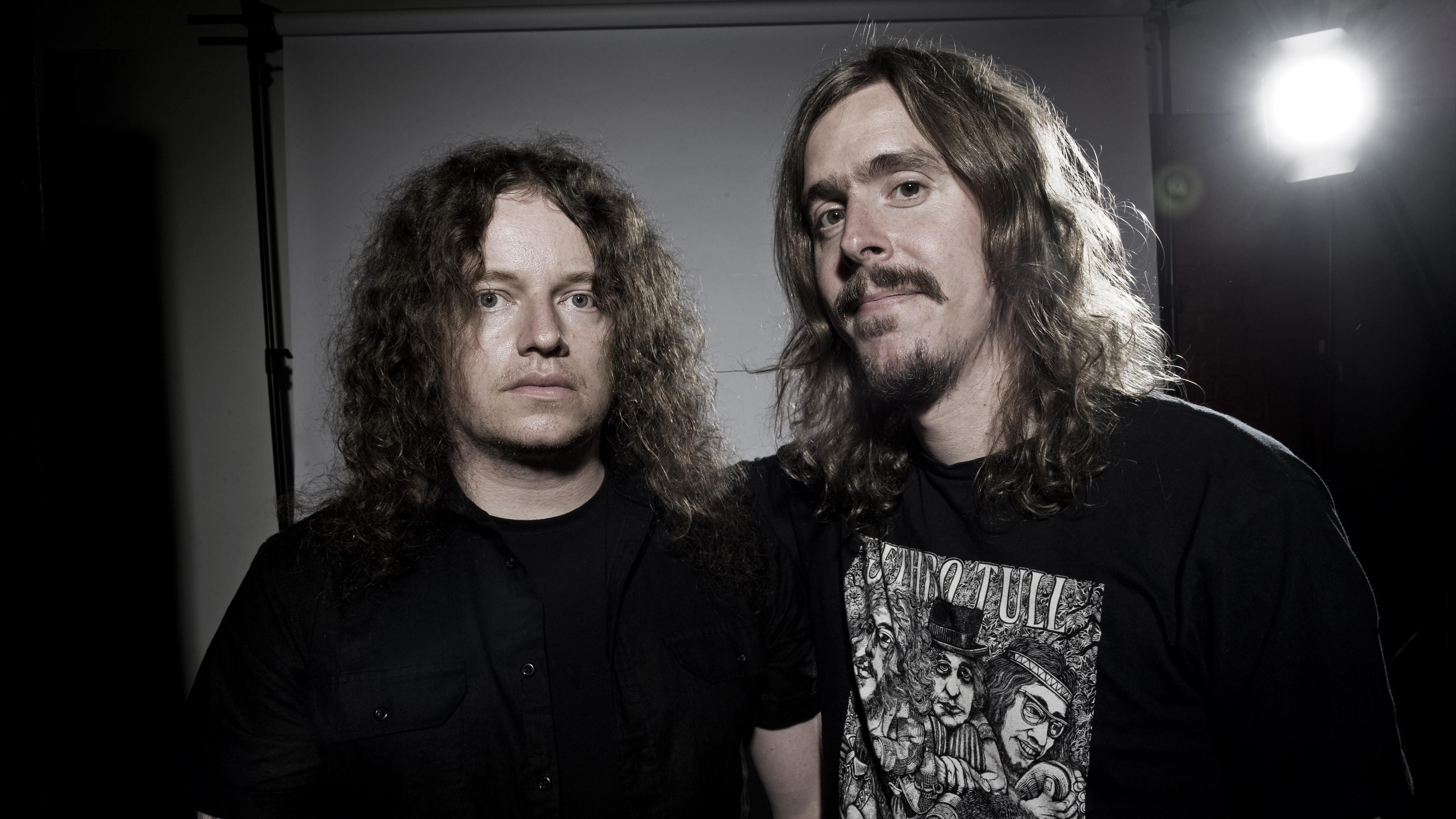
“When I started writing songs, I picked up where we left off with the Watershed record – I did two songs in a similar style.From the get-go, I wasn’t really feeling it. I played some of those songs to our bass player, Martin Mendez, who said, ‘If this is the next album, I’m going to be very disappointed’. But that was a big relief for me, because then I knew – I wasn’t the only one feeling that we had saturated the sound we had on Ghost Reveries and Watershed. So I just deleted those songs and started again.”
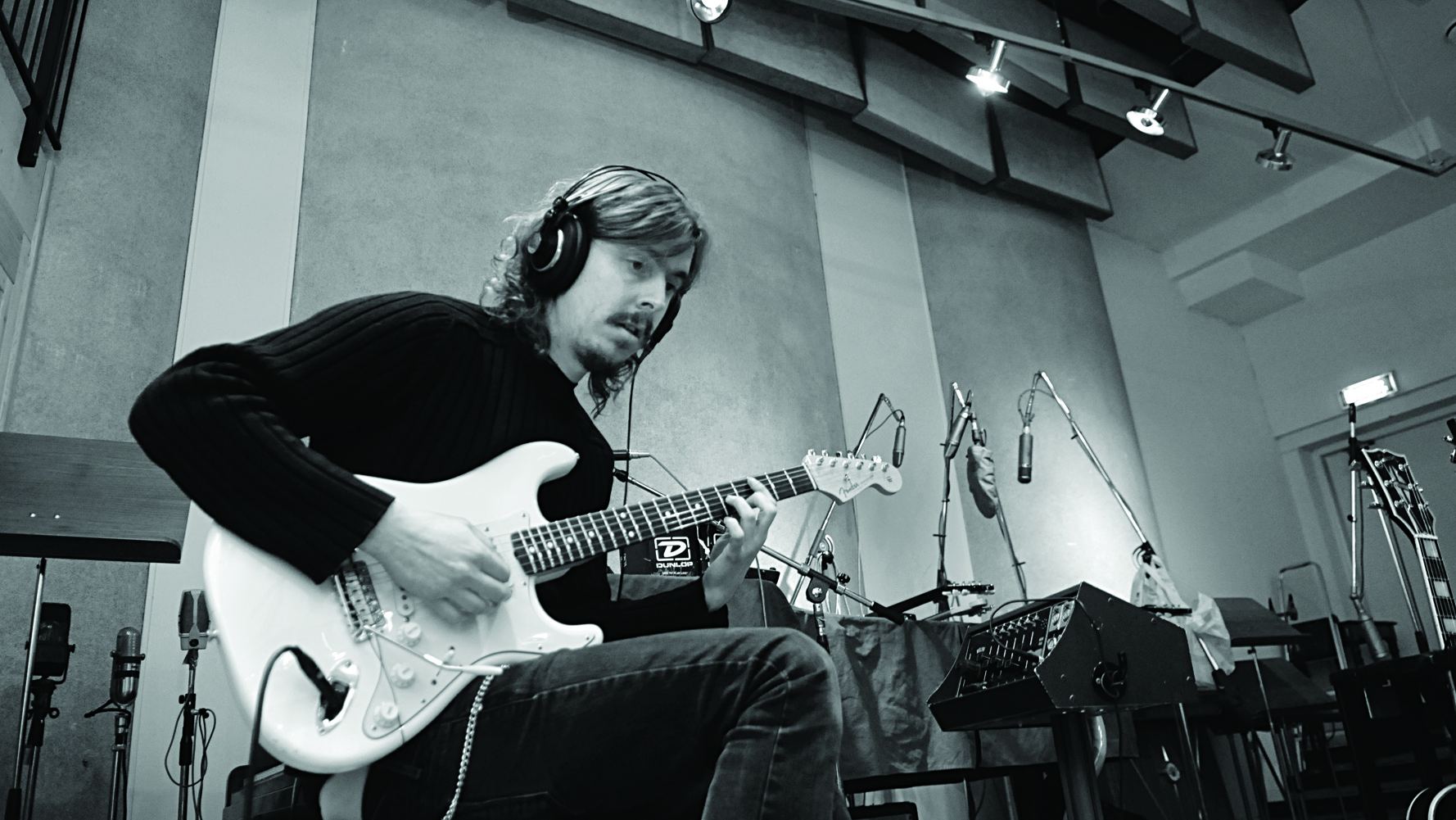
Åkerfeldt started with Lines In My Hand, which is “180 degrees from anything we’ve done before”. It’s an upbeat song that shifts from drums to bass and a playful acoustic lick before Opeth’s much-loved mellotron signals a more frenzied second half. First impressions are of a peculiar and free-spirited Opeth, but – as with this album as a whole, because it’s a journey – repeated listens reveal a new chapter for the band that makes refreshing sense.
“The Opeth fans have been tested before with Damnation,” notes Fredrik about the band’s landmark 2002 release. “That was a mellow album. You can’t really compare this one to Damnation, though, because it’s really intense and heavy in its moments.”
It would be wrong to say Opeth have jettisoned metal completely too. The experimental rock spirit exuded by Yes, King Crimson and Jethro Tull is strong on Heritage, but Opeth seem to be changing tack in how they approach the metal side of things. The central role acoustic fingerpicking plays in creating hypnotic atmospheres means heavier riffs don’t take such a leading role any more – it’s more about the vibe of the song as a whole. Yet it also means the doomy riffs of I Feel The Dark and the wonderfully eccentric Famine hit harder.
If you listen to the first Black Sabbath album there’s not a lot of distortion on the guitar, but it still sounds very heavy
Fredrik Åkesson
The latter has a devilishly twisted flute licking at it like an impish Ian Anderson, but that’s not the real story; Opeth have fundamentally changed their guitar tone by turning the gain down, and moved further still from ‘generic metal’…
Fredrik: “You get more of the sound’s core when you turn the gain down. You can express yourself more with your fingers instead of relying on a wall of distortion.”
Mikael: “We’ve done that wall of sound stuff too. And I think we’ve done it well; I love the sound of the Watershed record, but we couldn’t do it that way for this record. It had to be human and earthy. So once I got that idea [we decided] we should turn down the distortion and trust more in our own fingers, turn things around, because in metal music the guitars are always there [at the forefront] and the drums are just clicking through. Now we want the rhythm section to be pronounced and the music to be all over the place. Once I started writing with that sound production idea, it was easy.”
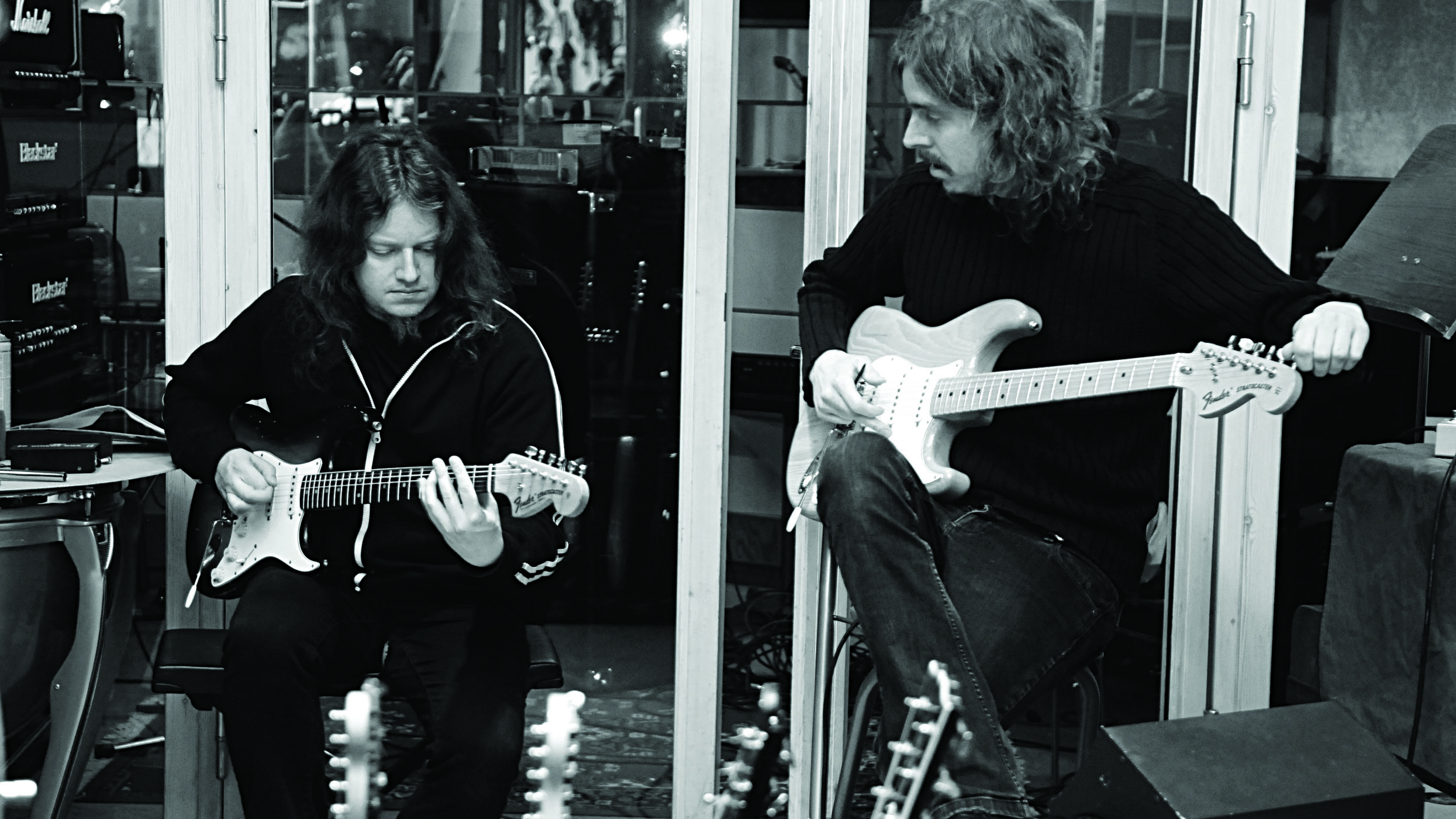
Fredrik: “It’s a different approach. For the main rhythm guitars, we used mostly single-coils in the neck position. In a way, it makes room for the other instruments – no interference with the frequencies. For instance, the bass is more distorted than ever on this album – because we can do it, it doesn’t interfere with the guitars. Then again, if you listen to the first Black Sabbath album there’s not a lot of distortion on the guitar, but it still sounds very heavy.”
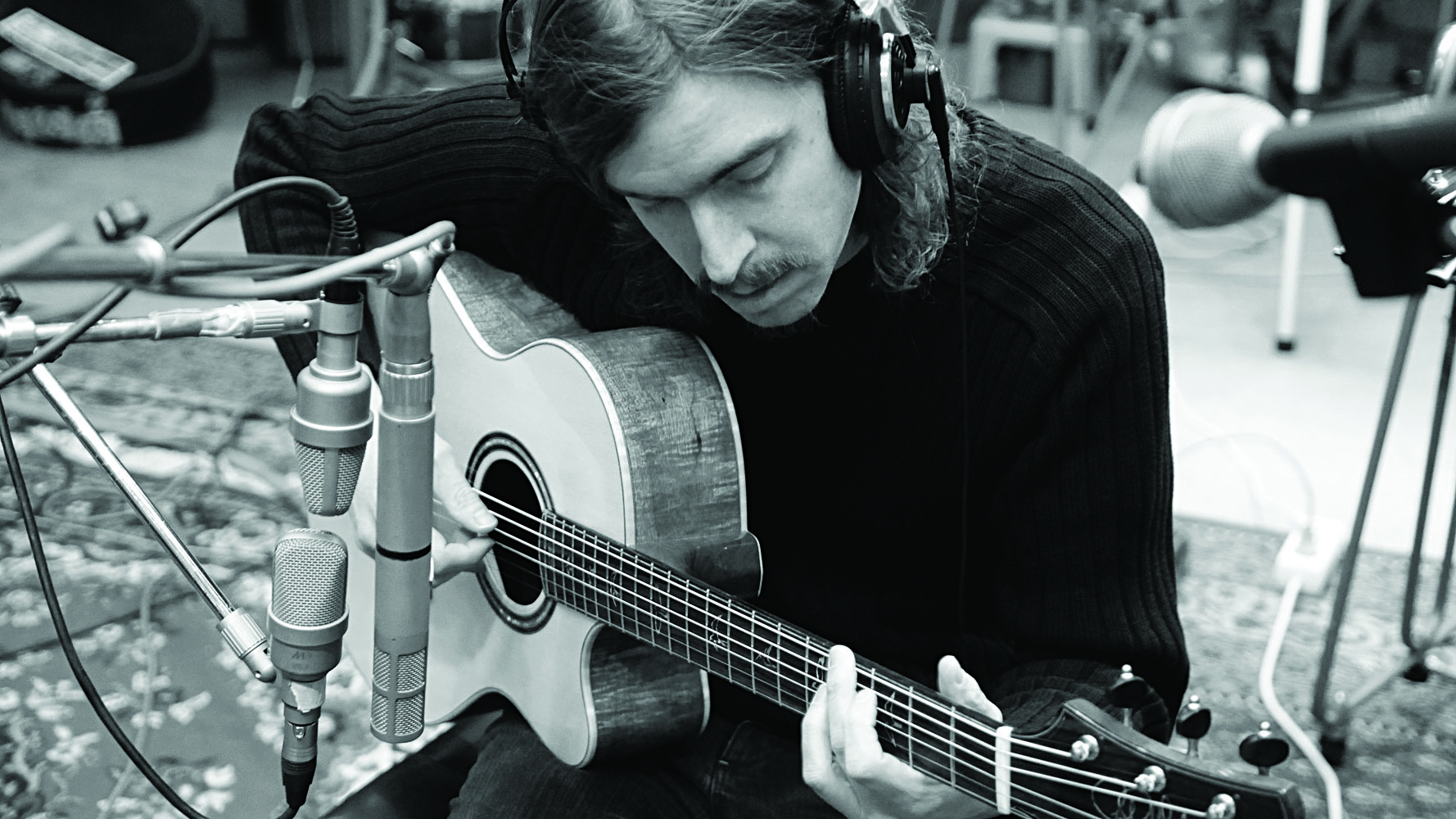
Even when I was only listening to metal, I always liked the acoustic parts
Some of those single-coil guitars were Strats, but the two PRS devotees also favoured a Starla. A humbucking PRS semi-hollow JA-15 features too: “I was thinking about buying a Gibson ES-175, and browsing on eBay for one,” explains Mikael, who regularly visits the auction site to fuel his hobby as a serious vinyl collector. “But then I thought, ‘Let’s go to PRS and see what they have’, and they had the JA-15. It’s all over the record.” “We had a Gibson amp from the 50s, for some semi-clean tones, and a Fender Deluxe for cleans,” adds Fredrik. “We used the Marshall 2203 JCM 800 a lot too, with the distortion and a distortion pedal set low for a little extra push.”
But equally vital is how Heritage brings acoustic fingerpicking to the fore more than even Damnation did. It’s always been a core part of Opeth’s appeal, and its seeds were sown in the band’s early days by metal influences, not those of Nick Drake and Bert Jansch, although they would come later…
“I worked in a shop that only sold acoustic guitars and my style and love for acoustic developed there,” explains Mikael. “But even when I was only listening to metal, I always liked the acoustic parts – say on a King Diamond record like the intro to Family Ghost and Them. Sepultura were even doing it on Schizophrenia, and Randy Rhoads on Dee.”
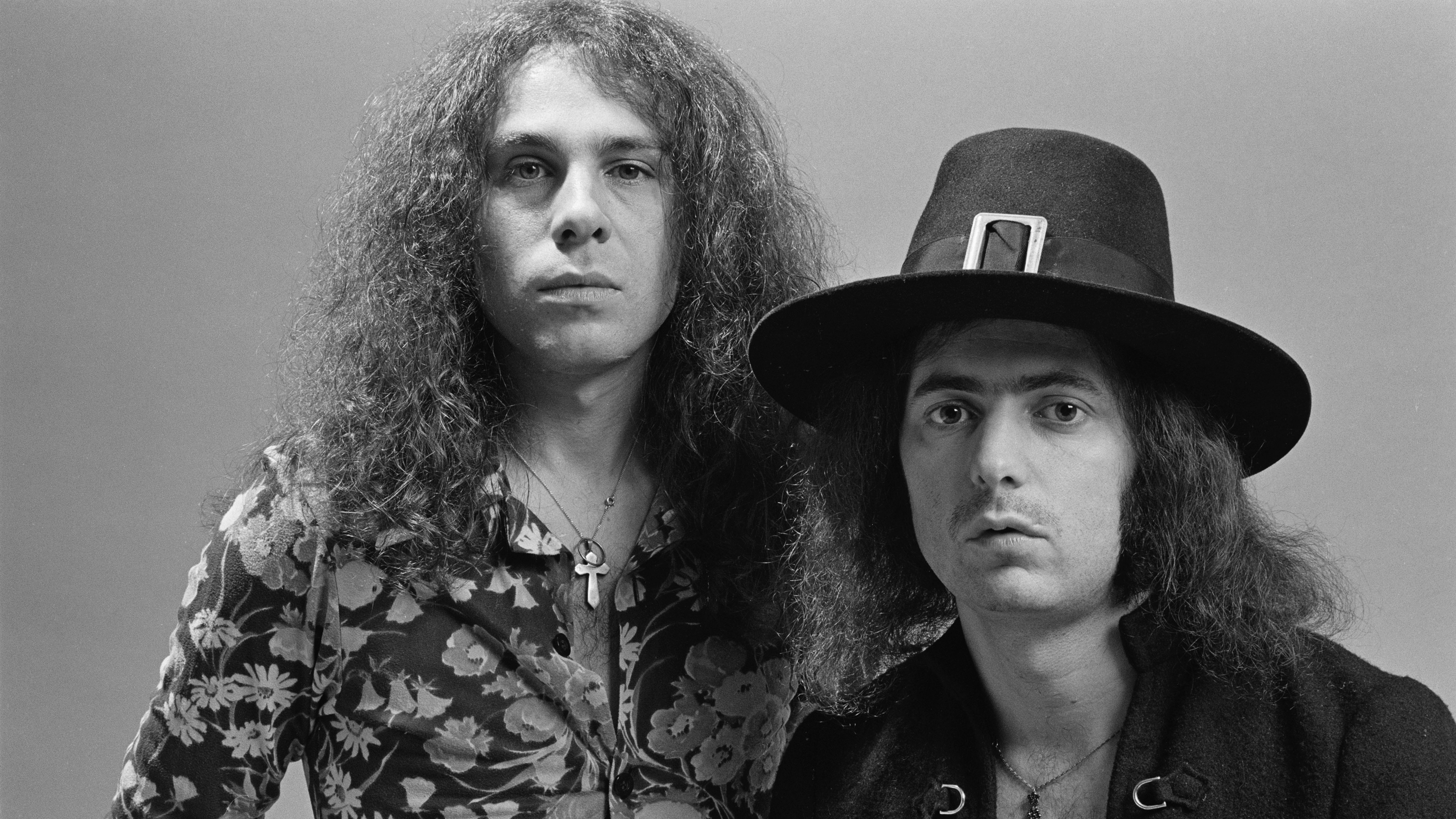
The most straight-ahead rock song on Heritage is Slither – it’s four minutes of majesty that sounds like a lost Rainbow song. Well, that’s exactly what Opeth were aiming for…
“The working title for the song was Kill The Queen, as opposed to Kill The King,” laughs Mikael. “I came up with this lick and thought, ‘Sounds like Rainbow!’ It’s not by any means the most original song that we’ve done, but Dio meant a lot to us. Out of every rock influence that we’ve listened to as we’ve grown up, he’s been number one.
"When he passed away, I didn’t think I was going to react like that, but I was devastated for weeks. I met him once and it made a big impression on me – how gentle he was, and a great person too. But Slither isn’t a tribute to just Ronnie but to Rainbow as a whole – to Ritchie Blackmore as well. I asked Fredrik to come over to my place to write a solo for it and he said, ‘It’s like a lost Rainbow song!’ I didn’t even have to tell him, he knew: ‘OK, let’s do a Blackmore kind of solo’.”
It’s natural to hear acoustics taking such a central role on Heritage, but Mikael acknowledges that the band’s live rig will have to reflect it: “I think we’re going to be using acoustics for the next tour – switching between those and electrics. Every album is important, but with this one it wouldn’t be fair to go out and do it with piezos, though they sound good.”
And the acoustic sounds on Heritage are more than good. They are the result of Mikael investing in a Ramirez 1A classical guitar and PRS Angelus, plus his access to the advantages of the echo chamber facility at the Atlantis studio in Stockholm.
“All the reverbs on the album are natural,” explains Fredrik. “It’s not a square room – the walls are concave for a big reverb sound.”
Mikael pitches in: “You send the signal into the echo chamber then take it back through a separate channel.” Working around the acoustic layers and prominent rhythm section flourishes is the band’s distinct approach to lead spots. When Opeth play solos, they matter, and they’ve never sounded this varied before."
Mikael: “We want to make the solos count. If there’s a solo, it shouldn’t just be there for the purpose of having one. We worked quite hard with them.”
Fredrik: “We tried to do very different sounding solos. The album isn’t drenched in solos. The first solo for The Devil’s Orchard I play has a bit of a Uli Roth vibe to it, and the intro to Folklore that Mikael plays connects a lot with the old Swedish folk music. We grew up with it and the main influence in Swedish folk music is pianist Jan Johansson. The piano intro [on the title track] relates to his stuff…”
Mikael: “Fredrik is more of a lead guitar player on this album than I am. Since he joined the band, I’m doing the slower leads and he’s doing the more outrageous stuff. He used his PRS Tremonti for the Allan Holdsworth jazzy solo in Nepenthe."
Heritage is a one-fingered salute to anyone who dismissed the recruitment of Åkesson, and drummer Martin Axenrot as a shredder and death metal tub-thumper. They shine on this album as musicians with a strong desire to grow. Perfect for Opeth, then.
“My goal is to be a diverse guitar player,” confirms Fredrik. “And Opeth has helped me with that since I joined, because [the band] contains a variety of different styles of playing – the acoustic, heavy, shreddy and calmer, more laid-back leads. I wouldn’t say it was more challenging than before – it came out pretty natural in a way. I just try to do whatever suits the song as best as possible.”
“Usually, I never have to push him in the right direction,” notes Mikael. “He always gets it, it’s always easy.”
“I don’t want to be one of those bands where you’ve done 10 albums since that great album and people are still talking about that shit"
Mikael Åkerfeldt
Åkerfeldt himself is impressing further as a player on Heritage – his closing bluesy solo on Häxprocess is a masterclass in feel – but he’s developed as a singer too. “The vocals on this album were more challenging than ever to me,” he notes. “I’m singing cleaner, but it’s more of an aggressive clean voice than I had before. That’s a side of my musicality I want to develop. But with the screaming vocals, I can’t make it more brutal, so to speak. I’m fully [trained] when it comes to doing the death metal vocals. The only way for me is down, but with the clean vocals I don’t think I’m ever going to feel fully [trained]. But if we, in the future, do a super heavy metal record, I’m still going to be screaming.”
So no, Mikael isn’t ruling out another ‘metal’ album, but he raises an important point: “With the metal records we’ve done in the past, pretty much all of them have been influenced by nonmetal music, which is a good reason why we sound like we do; because we don’t go out listening to the latest metal record.”

How Opeth’s fans react to the band’s latest will be interesting. Mikael knows what it’s like to be a metal fan, but has little time for extremist responses: “I was never like that, so it’s hard for me to understand. Judas Priest put out Turbo and all of a sudden there was synth. But when that album came out, for me, it was a Priest record and maybe I didn’t like it. But I wasn’t like, ‘I’m going to kill Rob Halford!’”
So whatever psychedelic turn Opeth have taken with Heritage, it’s produced one of the most intriguing musical journeys we’ve heard this year. It’s an album made from a place of pure musical integrity rather than any commercial concerns. And it sounds as though there’s more where it came from…
“I don’t want to be one of those bands where you’ve done 10 albums since that great album and people are still talking about that shit,” says Mikael. I want to be relevant; I want to be now, while not turning our back on our past. I don’t plan ahead, but now, having done Heritage, I still think we can develop that side. We’ll see.”

Rob is the Reviews Editor for GuitarWorld.com and MusicRadar guitars, so spends most of his waking hours (and beyond) thinking about and trying the latest gear while making sure our reviews team is giving you thorough and honest tests of it. He's worked for guitar mags and sites as a writer and editor for nearly 20 years but still winces at the thought of restringing anything with a Floyd Rose.
“I’m beyond excited to introduce the next evolution of the MT15”: PRS announces refresh of tube amp lineup with the all-new Archon Classic and a high-gain power-up for the Mark Tremonti lunchbox head
“These guitars travel around the world and they need to be road ready”: Jackson gives Misha Mansoor’s Juggernaut a new lick of paint, an ebony fingerboard and upgrades to stainless steel frets in signature model refresh

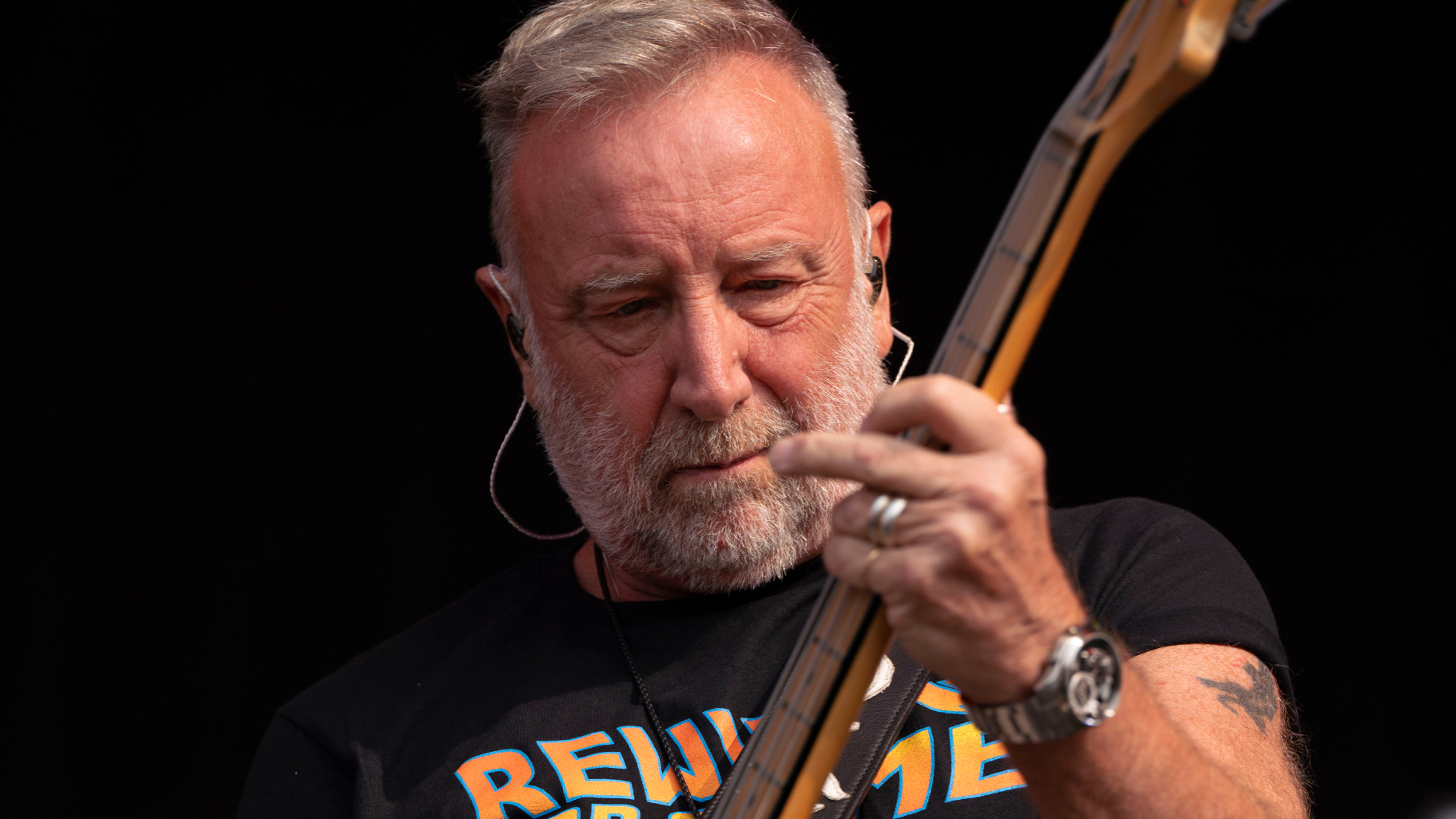
![PRS Archon Classic and Mark Tremonti MT 15 v2: the newly redesigned tube amps offer a host of new features and tones, with the Alter Bridge guitarist's new lunchbox head [right] featuring the Overdrive channel from his MT 100 head, and there's a half-power switch, too.](https://cdn.mos.cms.futurecdn.net/FD37q5pRLCQDhCpT8y94Zi.jpg)






